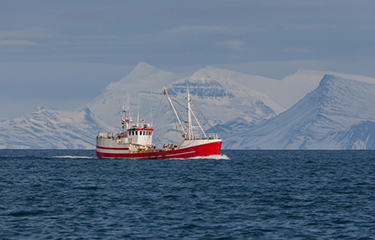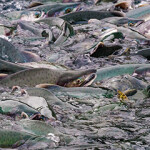NOAA extends marine mammal exemptions for seafood imports

NOAA Fisheries has delayed implementing rules designed to bring seafood imports into compliance with U.S. marine mammal bycatch once again, extending the exemption for another two years.
NOAA Fisheries issued a final rule in 2016 that would require U.S. trade partners to secure a “comparability finding” showing that their wild-caught commercial fishing operations align with U.S. conservation standards for marine mammals. Nations that do not have a comparability finding would be banned from exporting those seafood products to the U.S.
The rule technically went into effect on 1 January 2017, but NOAA Fisheries included an initial five-year exemption to give trade partners time to secure compatibility findings and come into compliance with the new requirements. The exemption was extended initially due to the Covid-19 pandemic, but the agency has continued to push back the deadline. Last October, the agency announced a one-year extension. In February, the agency pushed the deadline back another couple of months to 31 December 2023.
However, those extensions haven’t given NOAA Fisheries enough time to begin acting on the 2016 rule.
On 16 November, NOAA Fisheries announced that it was extending the exemption period for two more years, through 31 December 2025.
“Following careful consideration, the Department of Commerce and NMFS have concluded that additional time is required to effectively complete the evaluation process,” the agency said in a statement. “This decision is influenced by the considerable number of foreign fisheries, the evolving nature of fisheries data, and the practical challenges associated with assessing the comparability of regulatory programs in foreign countries.”
NOAA Fisheries has received 134 applications representing 2,500 foreign fisheries. The agency makes determinations on a fishery-by-fishery basis.
“To review applications for comparability findings, NMFS evaluates each nation's regulatory programs to address incidental and intentional mortality and serious injury of marine mammals in each fishery that exports fish and fish products to the United States,” NOAA explained in its rule.
Photo courtesy of Shutterstock / Johann Ragnarsson






Share